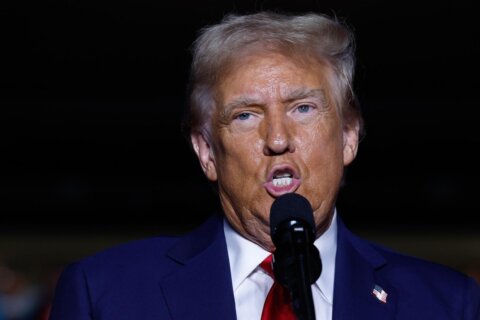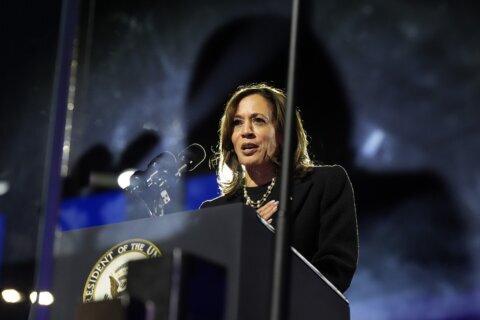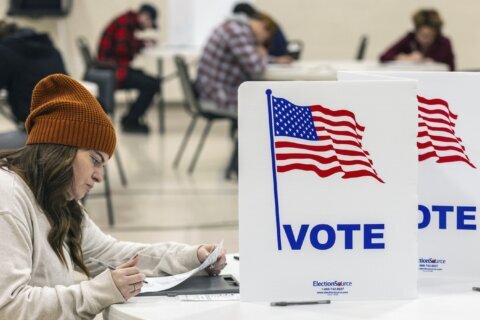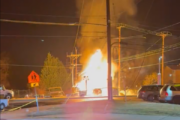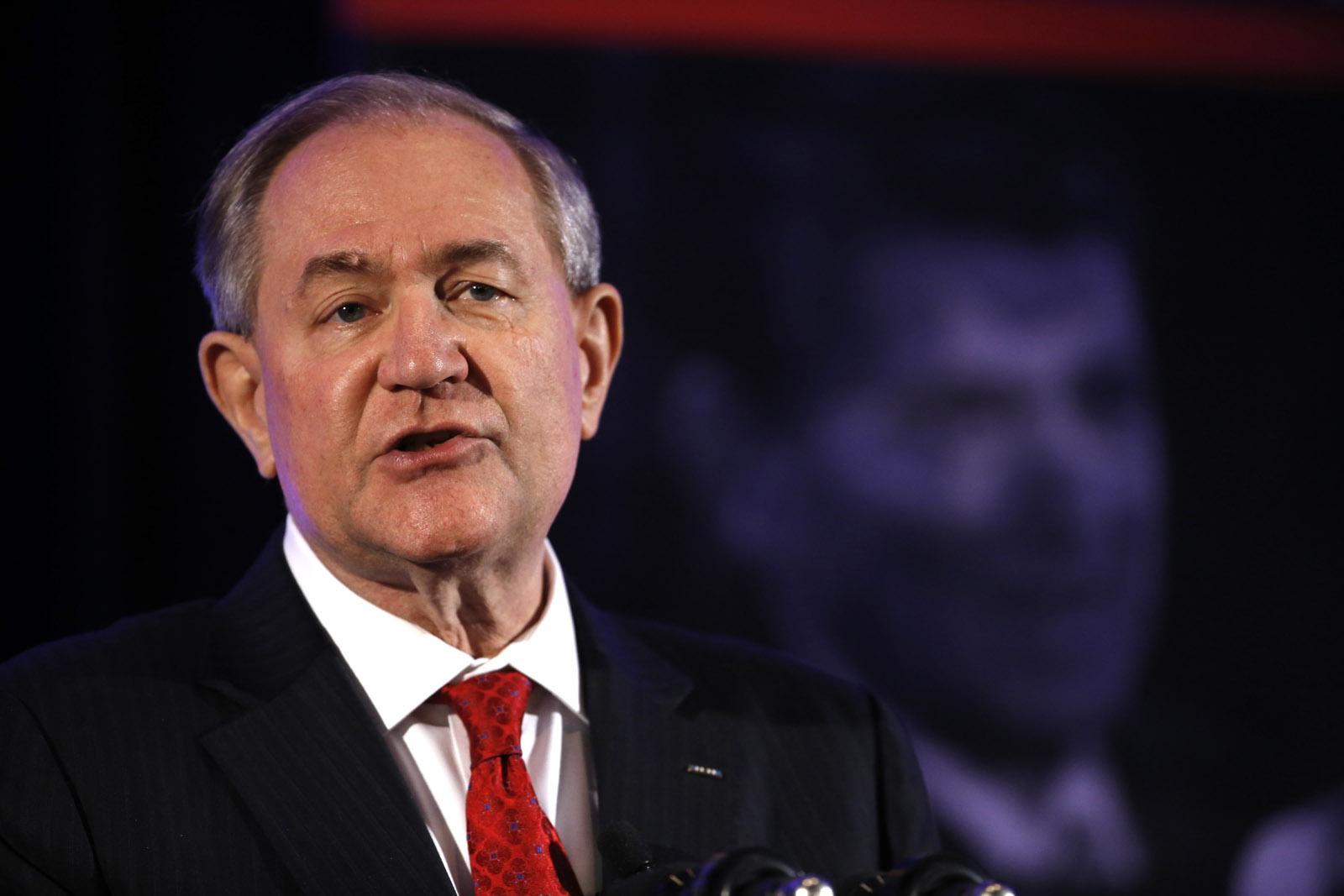
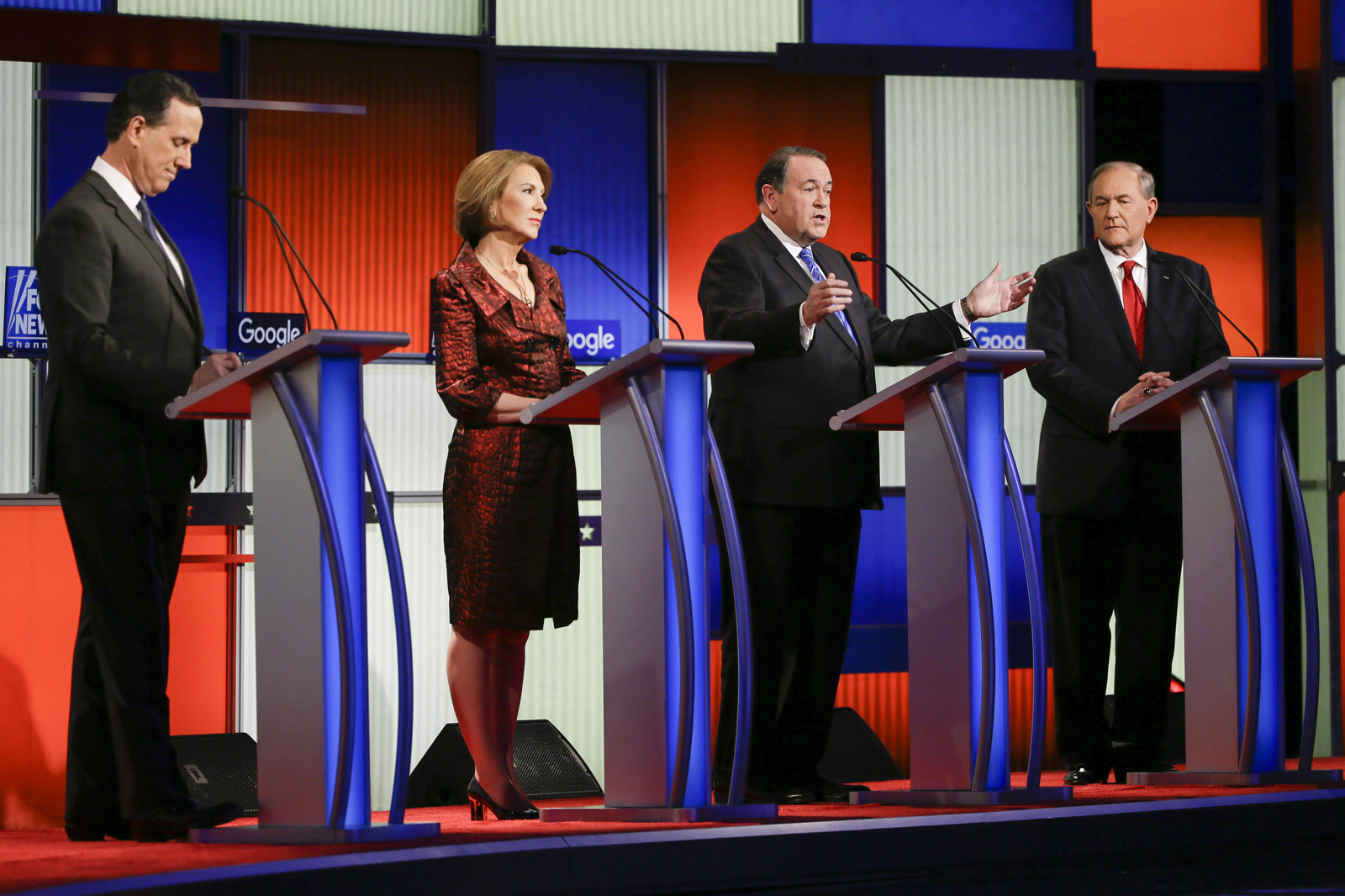
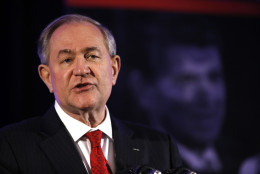
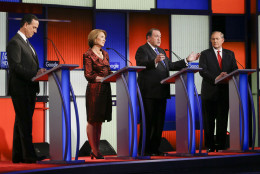
UPDATE: Roughly two hours after this story was published, Jim Gilmore announced he was ending his campaign for the White House. Read the latest about his decision here.
EARLIER:
WASHINGTON — Chris Christie has returned to New Jersey. Carly Fiorina is out. No more Rick Santorum, Mike Huckabee or Rand Paul. Questions remain about how long Ben Carson will stick with it. But former Virginia Gov. Jim Gilmore, who amassed a whopping 145 votes combined between Iowa and New Hampshire, is still in the running to be the Republican’s presidential pick.
Never mind that he’s garnered 1/1,000 of the votes front-runner Donald Trump has amassed and zero delegates. At of the end of December, he had $33,000 in cash on hand and had spent $180,000, much of which came from loans and isn’t even enough to mount a competitive House of Delegates race let alone a presidential bid.
His performance in polls from NBC, Reuters, CBS and Quinnipiac during the past week has been nonexistent and he’s not been invited to be among the candidates participating in Saturday’s CBS debate in South Carolina.
His campaign is now discussing its next steps, says Boyd Marcus, Gilmore’s national campaign manager.
“We’re going to be making some decisions over the next day or so,” Marcus tells WTOP.
In the meantime, Gilmore has not held any events in South Carolina and he was in Virginia Friday.
His campaign Twitter account has been silent since Tuesday night, when was joined by a smattering of supporters for his results watch party in New Hampshire.
But why Gilmore has stayed in the race this long is a mystery, says Geoffrey Skelley, a political analyst with the University of Virginia Center for Politics.
“I can’t explain it; we can bandy about ideas. It may be that he’s hoping to get a position in a Republican administration or it may be some sort of wild goose chase for him,” Skelley said.
Skelley says he doesn’t believe that this campaign would help Gilmore much if he were angling to run for statewide office again in Virginia, especially as formidable Republican candidates like Ed Gillespie and Rob Wittman are eyeing a run for governor in 2017. The next senate race isn’t expected until 2018.
Gilmore’s campaign has been hampered by his long gap in public service and his long stay out of the limelight. He briefly served as chair of the Republican National Committee but he left the governor’s mansion and the RNC in 2002, Skelley said.
He has tried to campaign on his conservative track record, his executive experience and his nation security experience. But it hasn’t grabbed the attention of voters.
Even his reminder that he’s the lone veteran still in the race hasn’t been effective, Skelley said.
In an interview with The Atlantic before the Iowa caucuses, Gilmore blamed the national media for the lack of attention paid to his campaign and his exclusion from most of the debates. He said the campaign had become about entertainment, not public policy and he said the candidates were playing on the fears of Americans.
As president, he said he would focus on veterans issues, protecting Second Amendment rights and protecting the country from what he called an international guerrilla war.
Gilmore was governor of Virginia during the Sept. 11 attacks at The Pentagon. A former Army intelligence officer, he also served on a congressional advisory panel on terrorism.
“This is no time to put an amateur in the White House and I have the background and experience that the other candidates don’t to be the commander in chief and to guide the United States through this dangerous time,” The Atlantic reported Gilmore as saying.
He’s best known in Virginia as the architect of a plan to eliminate the car tax, a goal that was never fully realized. While the personal property tax on vehicles was reduced, it was never eliminated.

